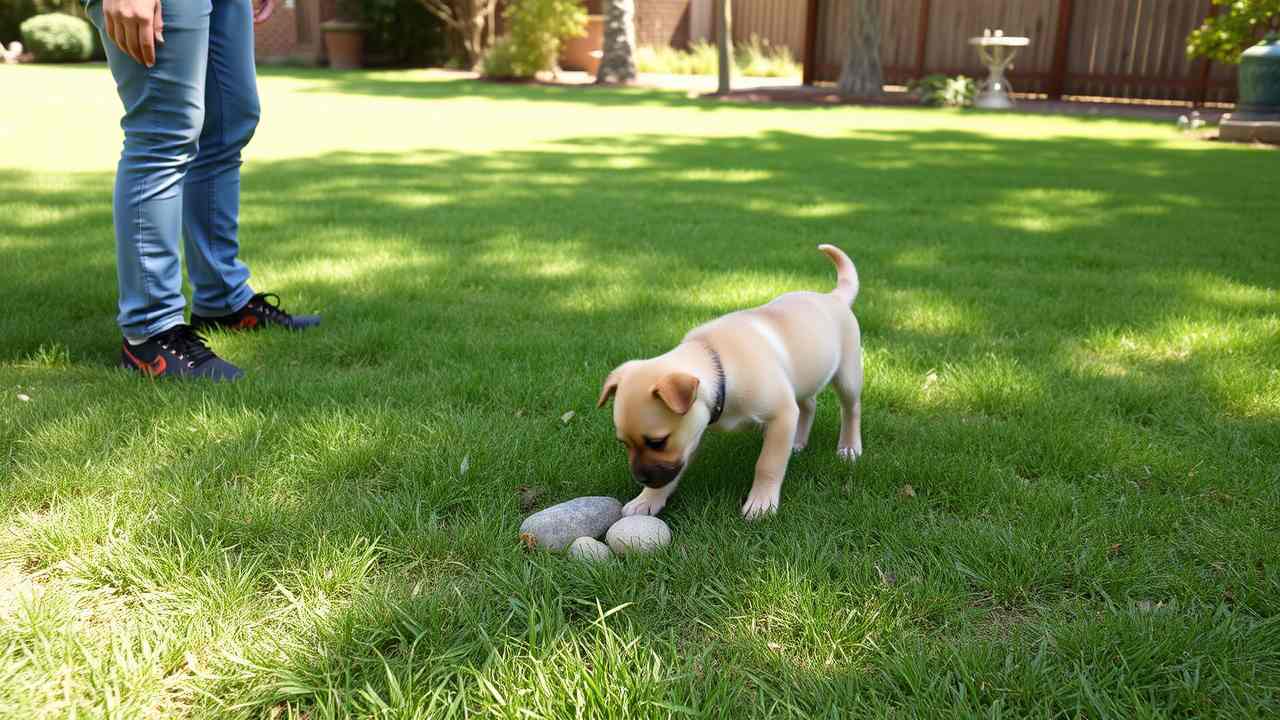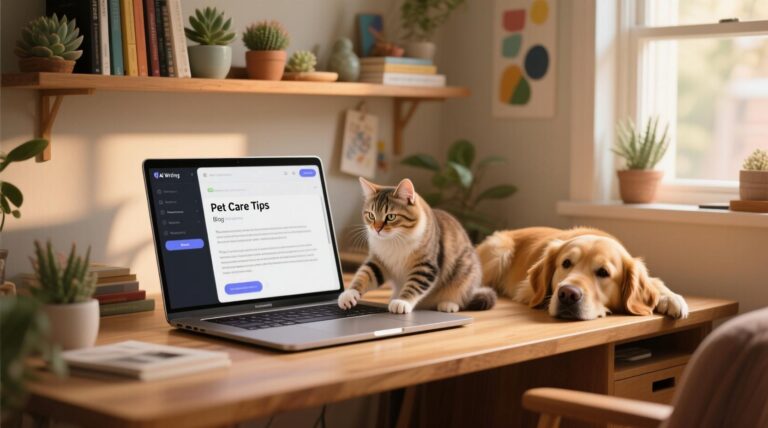How to Stop Puppy from Eating Rocks Outside Without Losing Your Mindset
Puppies are naturally curious, and that curiosity often involves tasting the world around them—literally. If you’ve caught your puppy chewing or swallowing rocks during outdoor walks or playtime, you’re not alone. But this behavior isn’t just frustrating; it’s dangerous. Choking, intestinal blockages, and damaged teeth are real risks. You need solutions that work, and you need them fast. That’s why understanding how to stop puppy from eating rocks outside is not just a training issue—it’s a matter of safety.
Why Puppies Eat Rocks in the First Place
Before you stop the behavior, you need to understand why it’s happening. Puppies explore with their mouths. Rocks may seem fun to chew on because of their texture or coolness. Some puppies may also be bored, anxious, teething, or lacking proper nutrition. Others may have a condition called pica, which causes them to crave and eat non-food items.
But knowing the reason doesn’t excuse the behavior. If your dog swallows a rock, it could lead to a life-threatening emergency. Prevention and correction must be swift and consistent.
How to Stop Puppy from Eating Rocks Outside
This behavior won’t fix itself. Ignoring it could cost you thousands in vet bills—or worse. You need to take deliberate steps to interrupt and retrain your puppy’s outdoor habits.
The first thing to do is supervise all outdoor activity. Until the habit is broken, your puppy should never be left alone in the yard. You must be present and alert. Each time your puppy goes for a rock, immediately redirect. Use a firm, calm voice to say “Leave it” or “No.” Then offer a better alternative—like a chew toy or treat. This replacement method teaches your dog that better rewards come from obeying you, not from chewing gravel.
If your puppy doesn’t already know basic commands, now is the time to start. Teach “leave it,” “drop it,” and “come” as core skills. These aren’t optional. They are lifesaving commands, especially for dogs prone to eating things they shouldn’t. Work in low-distraction areas and slowly introduce outdoor scenarios as your puppy progresses.
Mental stimulation is often overlooked. Bored dogs develop bad habits. Long walks, obedience training, interactive toys, puzzle feeders—these all drain energy and reduce obsessive behaviors like rock-eating. Tired dogs behave better.
Sometimes, nutrition plays a role. If your puppy is eating high-carb, low-nutrient food, they might look for minerals elsewhere—even in rocks. Switch to a high-quality, vet-approved puppy food. Make sure it’s rich in protein, omega fats, and essential vitamins. Don’t feed table scraps or overly processed treats. What goes into your dog directly affects their behavior and cravings.
If the behavior seems compulsive or gets worse, consult your vet immediately. Your dog might have a deficiency, digestive issue, or behavioral disorder that needs medical attention. Bring up the possibility of pica, and be ready to discuss diet, daily routine, and environmental factors.
You can also take environmental control seriously. If your yard is full of small rocks or gravel, consider replacing them with grass, mulch, or larger, less chewable stones. When on walks, avoid routes with gravel paths or construction zones. Bring treats and toys to distract your puppy during high-risk moments.
Replace, Redirect, Reinforce
Correcting this habit is about consistent intervention. Every time your puppy approaches a rock, you must act. Say the command. Offer an acceptable alternative. Reward compliance. If the puppy continues to go for rocks, calmly remove them from the area and try again later. Don’t yell or physically punish. It doesn’t work and can create anxiety, which only increases compulsive behaviors.
If your puppy likes chewing, give them something better. Frozen carrots, rubber chews, and flavored dental toys are far more satisfying and safer. Keep these tools handy during walks or playtime. The more you reinforce acceptable behaviors, the faster your dog will drop the bad ones.
Make training part of your daily routine. Five minutes in the morning, five at night, and frequent check-ins during the day create real results. Dogs don’t learn from occasional lessons. They learn from repeated structure and consistency.
Use leashes and harnesses for more control. When you notice your puppy sniffing or eyeing rocks, gently guide them away. Don’t let them get to the point of picking one up. If they already have a rock in their mouth, command “drop it,” then calmly remove the item if they resist. Always praise and reward the correct action.
If this feels exhausting, that’s because it is. But it works. A few tough weeks of vigilance prevent a lifetime of emergency vet visits, surgery, or worse.
Training is Not Optional
The most effective way to stop rock-eating behavior is through obedience. Not fancy tricks—just clear, consistent commands. Puppies thrive on structure. If you don’t give them rules, they’ll make their own.
Work on “leave it” multiple times a day. Use a leash, place a low-value object like a rock nearby, and walk your puppy past it. When they look or lunge, give the command. If they ignore it, gently correct with the leash and try again. When they respond properly, reward immediately. This creates positive association and teaches control even in tempting situations.
You can also train impulse control by making your puppy wait before eating, exiting doors, or playing. These exercises build patience and responsiveness, which directly impacts how your puppy behaves outside.
If you’re struggling, work with a professional trainer. Choose someone experienced with behavior modification, not just basic obedience. A few sessions can fast-track progress and give you the tools to stay consistent at home.
Don’t Rely on Quick Fixes
There are products marketed to deter dogs from eating non-food items, like bitter sprays or muzzle-like headgear. While these can be temporary aids, they do not address the root issue. The moment you remove them, the behavior returns. Relying on gadgets instead of training is a mistake. They may work as a stopgap, but long-term success only comes from behavior change.
Understand that every time your puppy gets away with eating rocks, the habit strengthens. So don’t give them the chance. Stay ahead of them with better routines, better food, and better structure.
Make Outside Safe Again
The goal is not to create fear, but to build trust. Your puppy should be able to explore the outdoors without constantly being yelled at or yanked away from danger. The more you guide them calmly and consistently, the less appealing rocks will seem.
Many dogs who once ate rocks become completely disinterested after a few weeks of proper training and stimulation. This isn’t a permanent problem—unless you let it become one. Take action early, follow through daily, and believe in your ability to change the behavior.
Knowing how to stop puppy from eating rocks outside gives you power. Not just over your puppy’s health, but over your peace of mind. There’s no need to panic or feel overwhelmed. You have tools, and you have control. Use them wisely.






